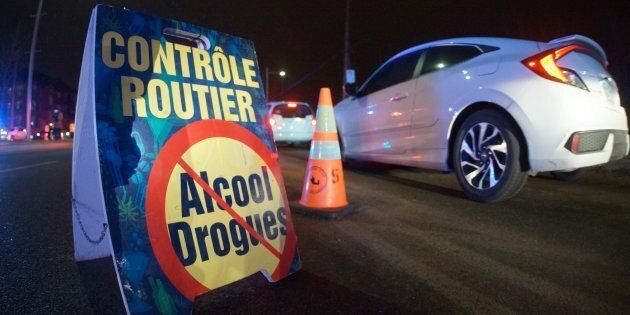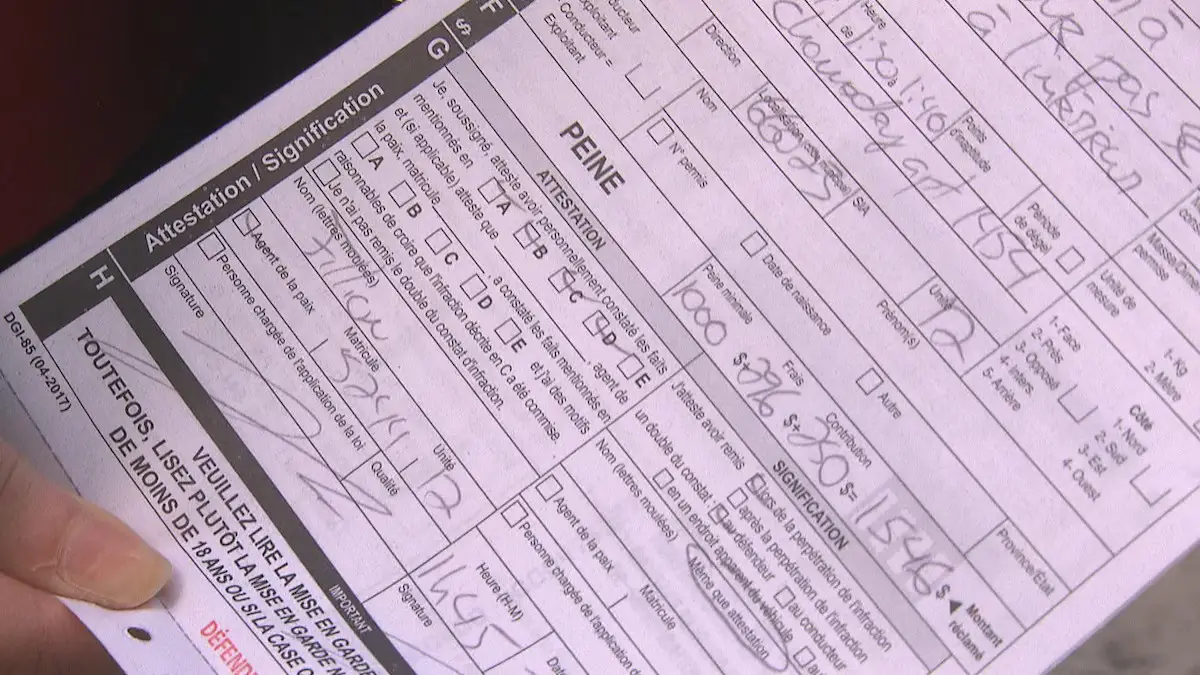Consequence to Refusal or failure to comply with a demand to blow into an approved screening device (ASD)
Refusal or failure to comply with a demand to blow into an approved screening device (ASD)
A peace officer who has in his possession an approved screening device may, in the lawful exercise of his powers, order the person operating a motor vehicle to immediately provide the samples of breath that the police officer peace considers necessary.
On the other hand, if a peace officer has reasonable grounds to suspect the presence of alcohol in the body of a person who has driven in the previous 3 hours, he can, by demand, require the person to immediately blow into an ASD.
Commits an offense to a person who, without reasonable excuse, knowing that a demand has been made, fails or refuses to comply without delay with the demand.
Refusal or failure to comply with a demand to blow into an approved breathalyzer
A peace officer who has reasonable grounds to believe that a person has operated a conveyance while the person’s ability to operate it was impaired to any degree by alcohol or drugs, or with a rate of blood alcohol content greater than 80 mg per 100 ml of blood (following an ADA failure), the officer may, by demand, require the person to provide samples of breath in a breathalyzer and to follow him to the police station for the test to be done.
A peace officer who has reasonable grounds to believe that a person has operated a conveyance while the person’s ability to operate it was impaired to any degree by the effect of alcohol or that they have, in the two hours following the moment when they stopped driving a means of transport, a blood alcohol level equal to or greater than eighty milligrams of alcohol per hundred milliliters of blood may, provided he does so as soon as possible, by demand, require the person to provide samples of breath that, in the opinion of a qualified technician, are necessary for proper analysis using an approved breathalyzer. The peace officer can also order the person to follow him so that blood or breath samples can be taken.
Commits an offense to a person who, without reasonable excuse, knowing that a demand has been made, fails or refuses to comply without delay with the demand.
Sanctions
For these two situations, the highway safety code includes immediate measures which are: an immediate suspension of the driver’s license for a period of 90 days, 30 days of seizure of the vehicle and a risk assessment.
In the event that a person is found guilty of this offense, the criminal code imposes a minimum penalty of a $2,000.00 fine, a criminal record and a 1-year driving ban for a first offense. Added to this are the sanctions contained in the Highway Safety Code which include: a revocation of the driver’s license for 3 years (concurrent with the 1-year ban imposed by the criminal code) with the possibility of driving a vehicle equipped with an alcohol ignition interlock device, then a maintenance assessment or a comprehensive assessment. Following the 3-year revocation period and successful completion of the assessment, there is a 2-year period during which the use of an alcohol ignition interlock device is mandatory. There will therefore be a total period of 5 years during which the use of an alcohol ignition interlock device will be compulsory.
Contact us for further information:
SolutionTicket.com’s Team
“The solution to your ticket problems in Quebec”
229-3221, Autoroute Laval O., Laval (Qc) H7P 5P2
Email: info@solutionticket.com






